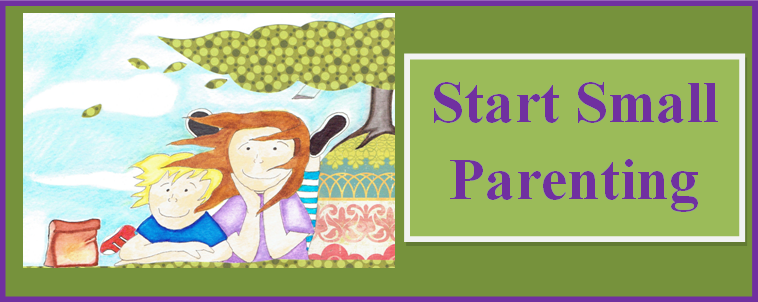Young children live and learn through their bodies. Without the distraction of verbal language and with immature cognitive development, young children live and learn through their bodies. They grow and learn about the world through their developing senses: vision, taste, smell, auditory, tactile (touch), vestibular (sense of balance), and proprioception (body awareness). We can help children to integrate what is received through these senses. Learning to have
Continue…
It’s not always easy communicating with our early childhood kids. Often, as soon as the child becomse verbal, parents are off and running with lots of words. There is often more “telling” than showing. When trying to teach your child a new idea or action, it can seem like “in one ear and out the other.” The parent’s repeated and lengthy word count can
Continue…
It is natural to look toward the apparent cause of disturbance or distress when some aspect of family life is out of balance. Parents often think that if they can just get their child to change, all will be calm, peaceful, joyful, easier – or any of the adjectives that parents hope for when there is chaos in the home. The first suggestion is
Continue…
The responsibility of raising children raises concerns. There are the daily issues like our child’s sleep, nutrition and safety. There are larger concerns of health and well-being that include our child’s development, temperament, resilience, or happiness. How can we, as parents, discern what our child needs, especially if they are off-track in some way, whether that be developmentally or with behaviors. A Curious Parent
Continue…
Almost all toddlers could be described as picky eaters. New foods often have disturbing tastes. If the child is used to breastmilk, formula, or sweet-tasting foods, it can be quite a transition to eat foods that awaken the other tastes. Alert! Alert! Strange taste in mouth! Toddlers are also new to making decisions and experimenting with control. One thing toddlers can control is what
Continue…
Look at the adorable Minion. There are so many cute movie-themed toys. Or toys with given names and personalities. Or toys that do something when you push a button. Toys that flash and move and give temporary delight. They all scream, “Buy Me” and children cry, “I want them.” Irresistible? Seemingly so. The message to the parent is, “Don’t deprive your child. If you
Continue…
Have you ever experienced any of the following? (Or overheard them with another family?) Your child refuses to listen and continues to pour syrup on the kitchen floor even as you are yelling, “STOP!!” Your child tells you how awful dinner is after you cooked all afternoon. Your child put his socks in the hamper. “Good job.” Your child finishes breakfast. “Good job.” Your child
Continue…
Many parents I know are on “High Media Alert.” Hyper-vigilant, reading articles for info, monitoring their kids as much as possible, asking other parents about limits, forming and reforming a strategy, and sometimes, freaking out. No other generation of parents has had to deal with an entity that was this unknown when they grew up. Sure, nobody wanted their kids playing pool in River
Continue…
Sharing. Taking turns. A child’s favorite toy is snatched up by another. How often does it end in tears and anger? Are small children too young to learn to share? In a recent article by Very Bloggy Beth, Why I Don’t Make My Son Share, she writes of her pre-school’s sharing policy in which a child can keep a toy as long as they
Continue…
From the moment my son could grasp, he held a stick in his hand. As he grew, the stick became integral to his play. It took on the life of a sword, a knife, a light saber, a spear. I thought of these as healthy ways for him to express childhood curiosity towards power and and aggression. But then, the stick became a gun.
Continue…

